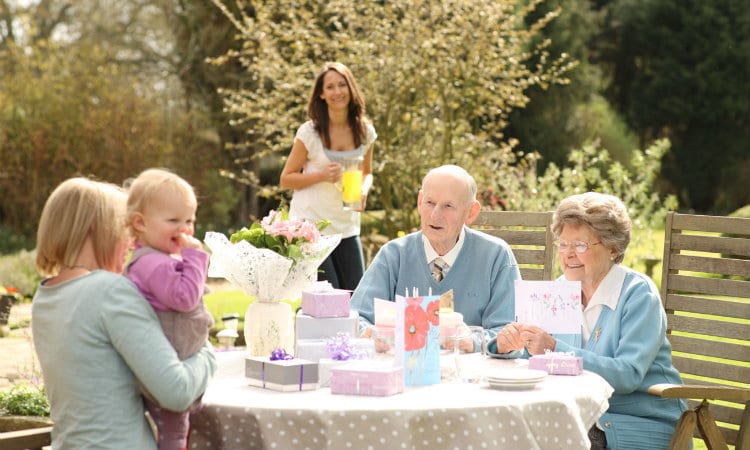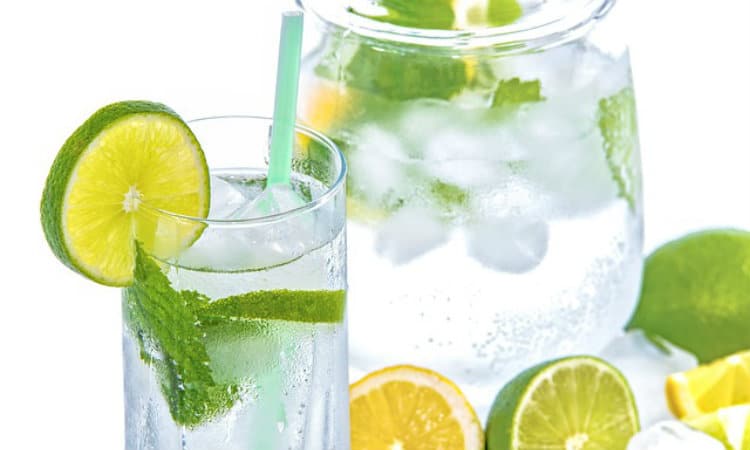It’s that time of year again; the nights are longer, the weather is warmer and the barbeques are out in full force. Yet when the mercury starts to rise, it can be quite uncomfortable for the elderly or those living with dementia.
Overheating at any time can be a problem. Not only is it uncomfortable for the person involved, it can also lead to health problems and heat stroke, something that’s particularly dangerous for the elderly.
Keeping cool in the warmer weather can be particularly difficult as we get older; we become less able to control our body temperature and dehydrated much more quickly. This is because we tend to sweat less, meaning our bodies find it difficult to stay cool. While this might not be an issue normally, during the summer months it can become a real problem, especially for those with dementia who may forget to drink fluids regularly.
With the weather set to heat up in the coming days and weeks, we’ve put together some tips and hints for how to keep your cool in the hot weather – including an excuse to eat your favourite ice lollies or ice cream!

Keeping cool in hot weather
Keeping cool is not just about the clothes you or your loved ones wear; although choosing your wardrobe wisely will help! Take a look at our top tips to maintain a cooler body temperature below…
Take a rest
Whilst it’s a good idea to maintain an active, healthy lifestyle, try to keep strenuous physical activity to a minimum when it’s warm. Doing too much in the heat can lead to dehydration, which can dramatically hinder the body’s ability to stay cool.
Cooling down
During warmer weather, having cooler showers, baths, or washes can be really refreshing and can also help to lower body temperature too. This, coupled with light, loose clothing made from good-quality cotton can also help to maintain a safe temperature. Taking on plenty of water or juice throughout the day is a must for keeping hydrated. Having a bottle of talc handy can be great for when you’re feeling a bit clammy but aren’t in the vicinity of a shower.
Eat cool foods
Another great way to stay hydrated is to eat foods with a high-water content. This includes salad foods such as cucumber, iceberg lettuce and celery, vegetables such as cauliflower and peppers, and fruits like strawberries, grapefruit and melon. Not forgetting a Mr Whippy or Twister ice lolly as a cooling treat, or an old-school favourite – jelly and ice cream!
Reminders for those living with dementia
Memory loss is one of the main symptoms of dementia, which can be particularly dangerous when the temperature rises and you or a loved one forgets to drink enough water. To make sure that you’re getting enough fluids, why don’t you try the following:
- Use a brightly coloured glass or bottle left in easy reach that’s regularly topped up
- For those who struggle to swallow, purchase a reusable, metal or bamboo straw
- Buy bottles that clearly show how much you’ve drank so you have a target to aim for
- Throw in slices of cucumber, lemon and sprigs of mint to flavour the water and make it that bit tastier

How to keep your home cool
Making sure the home is as cool as possible can really help to avoid overheating.
Keep the heat out
When it’s a hot day outside, take steps to make sure the heat stays away. To do this, keep curtains closed so the sun doesn’t shine into the home. This’ll help to maintain a cooler temperature inside.
Let the air flow through
Once the temperature outside has cooled to less than that indoors, open any windows to allow a breeze to flow through the home.
Keep the air cool
To help cool the air in and around the home, be sure to keep both house plants and outdoor plants nicely watered. Using fans can be great but when it’s extremely hot, fans often just blow warm air instead of cooling you down. Try putting the fan on the floor or low surface and placing a bowl of ice-cold water in front of it to really cool the air.
Cover up
If you or your loved ones need to go outside during the warm weather, try sticking to the coolest time of the day – before 11am and after 3pm. When venturing out, wear sun cream, and keep out of the sun as much as possible. Wearing light hats and scarves are great ways to do this when staying in the shade isn’t possible.
Signs of overheating
When it’s particularly warm outside, it’s important to know the signs if your efforts to keep cool aren’t working, so stay savvy and spot the signs quickly. Overheating may be shown by the following:
- Headaches
- Tiredness
- Confusion and other behavioural changes
- Feeling sick
- Feeling dizzy, weak or faint (and even fainting)
- Muscle spasms or cramps
- Swollen ankles
- Thirstiness
- Dark/strong smelling urine
- Dry mouth, lips and eyes
If you think you or someone you know is experiencing the symptoms of heat stroke, it’s important to get help immediately, particularly if the person is elderly. Heat stroke can be very serious.
If you need any further advice on keeping yourself or others cool during the warm weather, don’t hesitate to get in touch with us.
